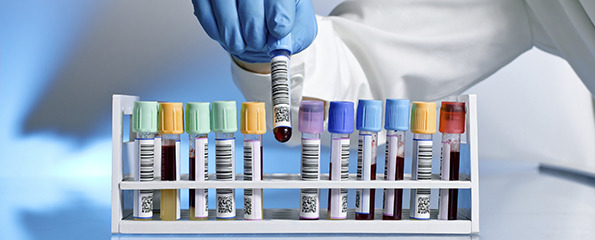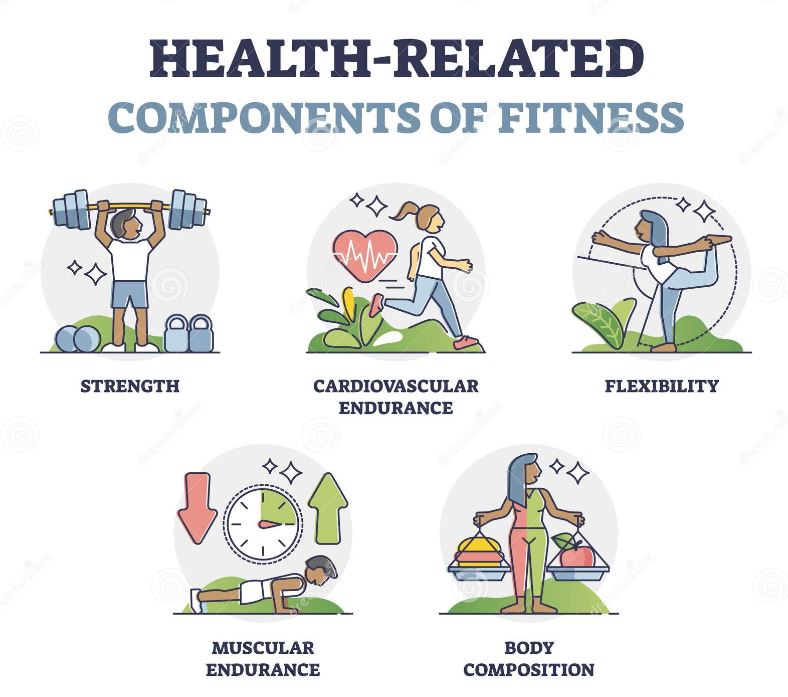Our health is often the sum of countless hidden factors, many of which go unnoticed until something goes wrong. While regular check-ups, blood tests, and monitoring vital signs are essential components of maintaining our well-being, there are lesser-known tests that can reveal surprising insights about our health. Some of these tests might seem unconventional or unusual, but they provide valuable information about underlying conditions that could otherwise remain undetected. Here’s a look at several surprising health tests and what they can reveal about your body.
1. Saliva Hormone Testing: The Silent Messenger of Stress
Saliva hormone testing is a non-invasive test that can provide a wealth of information about your hormonal health, particularly your cortisol levels. Cortisol is the body’s primary stress hormone, and its imbalance can lead to various health concerns such as weight gain, insomnia, anxiety, and even immune system suppression.
What It Tests For:
- Cortisol levels (stress hormone)
- DHEA levels (another hormone linked to stress and energy)
- Melatonin levels (sleep hormone)
What It Reveals:
- Adrenal fatigue: A condition where the adrenal glands fail to produce enough cortisol, leading to exhaustion.
- Chronic stress: Elevated cortisol levels can indicate prolonged stress exposure, which is a risk factor for heart disease, diabetes, and depression.
- Sleep disorders: Disruptions in melatonin levels can point to insomnia or irregular sleep patterns, which are often linked to mental health issues.
2. Genetic Testing: Unveiling Your DNA’s Secrets
In recent years, genetic testing has become a game-changer in health diagnostics. With a simple saliva or blood sample, these tests can identify genetic predispositions to various diseases and conditions.
What It Tests For:
- Genetic markers associated with diseases like cancer, Alzheimer’s, and cardiovascular issues.
- Ancestry and genetic heritage.
What It Reveals:
- Cancer risk: Specific mutations, such as BRCA1 and BRCA2, increase the risk of breast and ovarian cancers.
- Heart disease risk: Certain genes can indicate a predisposition to cardiovascular issues, allowing for preventive lifestyle changes.
- Pharmacogenomics: Understanding how your body metabolizes certain medications can help doctors tailor drug treatments to your genetic profile.
3. Microbiome Testing: A Window Into Your Gut Health
The trillions of bacteria, viruses, and fungi living in your digestive system play a critical role in your overall health. Microbiome testing analyzes a stool sample to provide a detailed picture of the microorganisms in your gut and their impact on your body.
What It Tests For:
- The diversity and abundance of gut bacteria.
- Presence of pathogens or harmful bacteria.
- Gut inflammation markers.
What It Reveals:
- Digestive issues: Imbalances in gut bacteria can lead to conditions like irritable bowel syndrome (IBS), inflammatory bowel disease (IBD), or food intolerances.
- Mental health: Recent research has linked gut health to mood disorders like anxiety and depression. The “gut-brain axis” shows that poor gut health can influence mental well-being.
- Immune function: Your microbiome plays a pivotal role in how well your immune system responds to infections and diseases.
4. Hair Mineral Analysis: A Snapshot of Your Nutritional Status
Did you know that your hair contains clues about your overall health? Hair mineral analysis measures the levels of minerals and heavy metals in your hair, which can indicate nutritional deficiencies or toxic exposures.
What It Tests For:
- Levels of essential minerals like calcium, magnesium, potassium, and zinc.
- Presence of heavy metals like mercury, lead, and arsenic.
What It Reveals:
- Nutrient imbalances: Deficiencies in certain minerals can affect bone health, muscle function, and energy levels. For instance, low magnesium levels are linked to fatigue and muscle cramps.
- Heavy metal toxicity: High levels of toxic metals can lead to neurological issues, fatigue, and cognitive impairment. Mercury exposure, for example, is linked to memory loss and tremors.
- Metabolic function: Mineral imbalances can provide clues to how well your body is metabolizing nutrients and maintaining electrolyte balance.
5. Heart Rate Variability (HRV): A Predictor of Longevity and Resilience
Heart rate variability (HRV) is the variation in time between each heartbeat. It might seem like a minor detail, but HRV is a powerful indicator of overall health and resilience to stress. HRV is often measured through wearable devices or specific heart monitors.
What It Tests For:
- The time intervals between heartbeats.
What It Reveals:
- Stress resilience: A higher HRV indicates that your body is adaptable and resilient to stress, while a lower HRV can signal chronic stress or burnout.
- Autonomic nervous system function: HRV reflects the balance between the sympathetic (fight-or-flight) and parasympathetic (rest-and-digest) nervous systems. An imbalance can lead to heart disease, anxiety, and high blood pressure.
- Overall longevity: Studies show that higher HRV is associated with longer life expectancy, as it indicates better cardiovascular health and adaptability to external stressors.
6. C-Reactive Protein (CRP) Test: A Clue to Hidden Inflammation
Inflammation is the body’s response to injury or infection, but chronic inflammation can be a silent killer. The C-reactive protein (CRP) test measures the level of CRP in your blood, a marker for inflammation.
What It Tests For:
- Levels of C-reactive protein in the blood.
What It Reveals:
- Risk of heart disease: Elevated CRP levels are linked to an increased risk of heart disease, as inflammation can damage blood vessels and lead to atherosclerosis.
- Autoimmune diseases: Conditions like rheumatoid arthritis and lupus are associated with chronic inflammation, which can be detected through high CRP levels.
- Infections: Acute infections, such as pneumonia or urinary tract infections, can cause a temporary spike in CRP levels.
7. Nail Health Assessment: Fingertips of Diagnosis
Though it might seem unconventional, examining your nails can reveal a surprising amount about your internal health. The color, texture, and shape of your nails can indicate nutrient deficiencies or even chronic diseases.
What It Tests For:
- Nail abnormalities such as discoloration, ridges, or unusual thickness.
What It Reveals:
- Iron deficiency: Spoon-shaped nails (koilonychia) can be a sign of iron-deficiency anemia.
- Liver disease: White nails may indicate liver disease, particularly cirrhosis.
- Heart disease: Blue-tinged nails can signal a lack of oxygen in the blood, potentially linked to cardiovascular issues.
8. Eye Examination: The Window to Your Overall Health
An eye exam can detect more than just vision problems. During a comprehensive eye exam, an optometrist can spot early signs of systemic diseases by looking at the blood vessels, nerves, and structures within the eye.
What It Tests For:
- Abnormalities in the retina, blood vessels, and optic nerve.
What It Reveals:
- Diabetes: Early signs of diabetic retinopathy, where blood vessels in the retina are damaged, can be detected through a simple eye exam.
- Hypertension: High blood pressure can cause changes in the blood vessels of the eye, which can signal cardiovascular risk.
- Neurological issues: Swelling of the optic nerve may indicate increased intracranial pressure, which can be caused by a brain tumor or other neurological conditions.
9. Thyroid Function Test: More Than Just Weight Control
The thyroid gland plays a critical role in regulating metabolism, energy levels, and body temperature. A thyroid function test measures levels of thyroid hormones (T3, T4) and thyroid-stimulating hormone (TSH) to assess how well your thyroid is working.
What It Tests For:
- Levels of thyroid hormones and TSH.
What It Reveals:
- Hypothyroidism: Low thyroid hormone levels can lead to weight gain, fatigue, and depression.
- Hyperthyroidism: Excessive thyroid hormones can cause weight loss, anxiety, and heart palpitations.
- Autoimmune thyroid disease: Conditions like Hashimoto’s thyroiditis or Graves’ disease can be identified through this test.
10. Vitamin D Test: The Sunshine Vitamin’s Role in Health
Vitamin D is essential for bone health, immune function, and mental well-being, yet many people are deficient without even knowing it. A simple blood test can measure your vitamin D levels and provide crucial insights into your overall health.
What It Tests For:
- Levels of vitamin D in the blood.
What It Reveals:
- Bone health: Low vitamin D levels can lead to weakened bones, increasing the risk of osteoporosis and fractures.
- Immune function: Vitamin D deficiency has been linked to a weakened immune response, making you more susceptible to infections and autoimmune diseases.
- Mood disorders: Low vitamin D levels are associated with depression and seasonal affective disorder (SAD), particularly in regions with limited sunlight.
Conclusion: Listening to What Your Body Tells You
These surprising tests may seem unconventional, but they offer valuable insights into the state of your health. By revealing hidden imbalances, risks, or deficiencies, these tests empower you to make proactive changes that can improve your overall well-being. Whether it’s understanding your genetic predispositions, managing stress, or uncovering hidden deficiencies, these tests provide a more comprehensive view of your health than traditional exams alone. In today’s world of advanced diagnostics, your body has more ways than ever to communicate what it needs — you just need to know how to listen.




